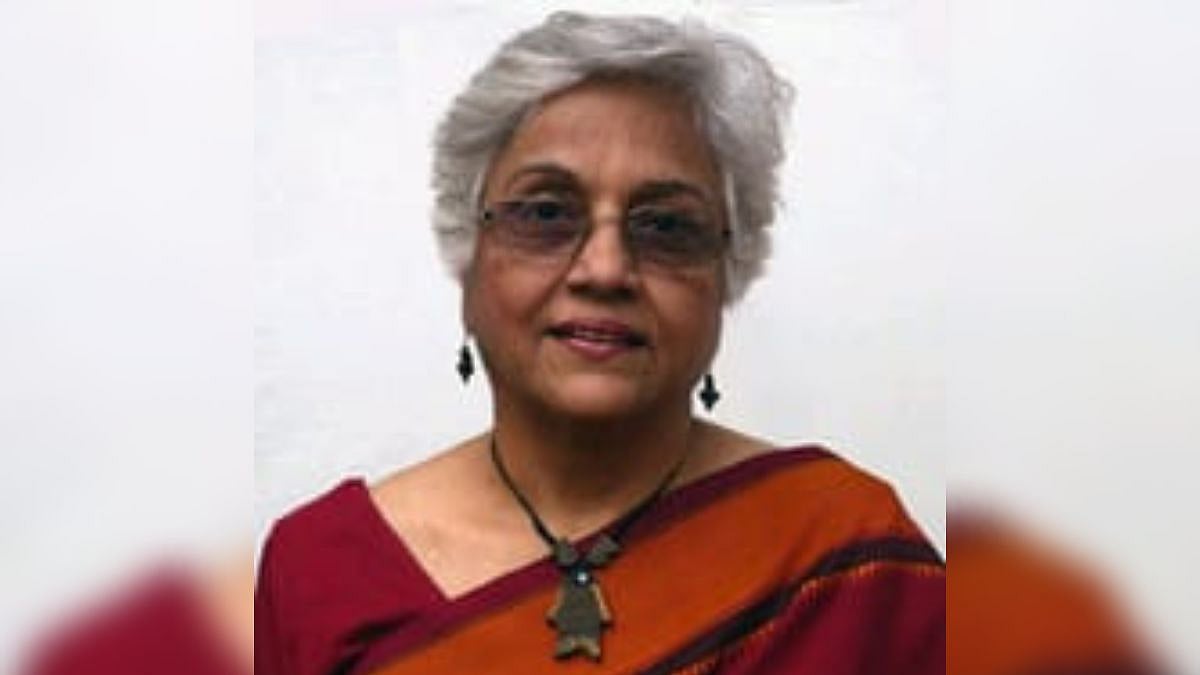Soon after some elected representatives met Chief Minister Eknath Shinde seeking lifting of stay on open space policy, open spaces have made a comeback of sorts. Because of the lack of consultation process before policies are finalised, citizens wrote to the CM and his deputy seeking their intervention, saying they will not allow a policy that paves way for a “kidnap” of open spaces. Ashutosh M Shukla spoke to Nayana Kathpalia, one of the signatories who has been working on open spaces since 1995. Kathpalia, 79, is a trustee of Nagar & Oval Trust.
Excerpts:
Has anyone from the authorities approached you or you have approached them after the last letter to the CM on open spaces?
Nobody has approached us and we have not approached anyone from NAGAR, the organisation on behalf of which I was signatory.
In a public meeting held recently on open spaces, an MLA from BJP said that 41 people who are holding on to public open spaces cannot take the city's open space policy for ransom. These include those looked after by local neighborhood groups, trusts and politicians. He said that all need to be taken by the BMC. Your comment on it.
I agree on this because we used to look after Horniman Circle through Horniman Circle Garden Trust. When the policy was scrapped, we peacefully handed it over to them. Many organisations did the same. However, these 41 or so just did not and the government did not bother to chase them. The policy has to be the same across the board. While implementing, it was discriminatory and they took away only some. From many others, they did not take back open spaces. If Mr. (Devendra) Fadnavis had scrapped the policy, the BMC should have taken the open spaces back from everyone.
There was apprehension voiced that even though 'caretaker' word may be dropped, terms of the new policy would be such that those holding on to open spaces will end up retaining them.
Correct. I will tell you why this apprehension is correct. In fact it is not apprehension because through the years, they have got policies where they have managed to have caretakers one way or the other. They came up with an ad around Covid period. We responded to it but no one replied to us. Even now when Mr. Shailesh Gandhi took it up, they have not responded. Across the years they have tried to somehow introduce some aspect of caretaker policy into the framing of new policy. There was an interim policy where they said we will give it to you for 11 months. Now when did this 11 month start, when did it end? Who did they take it back from when 11 months lapsed? It is all very opaque. No one knows anything.
Why do you think authorities find it so difficult to plan infrastructure without touching open spaces? Where lies the anomaly in approach?
It is the easiest thing for them to do. No houses or slums so everybody eyes empty open spaces. So it is the easiest thing to plan. They do not have to rehabilitate or move someone. We have always found that over the years. It is the easy way out for them. There is no holistic planning. All agencies do their own planning. I do not think the Garden department is even referred to or discussed at all when they plan something on open space. In an ad hoc planning, this is bound to happen.
You have been part of an organisation (OVAL Trust) that has managed open space for a long time. How difficult has it been for you guys to manage open space? Right from getting it to funding to nuisance. How have you tackled it? Were there other problems you encountered that were more troublesome?
When we started in 1997 or before, it was a new area of work. We were able to get funding. Funding at that time was easier to come by then than now. Obviously we were asked why the government is not doing it? We said you give the money and we will do it. Funding is a complicated thing. If someone has something around, say a factory, they may want to fund an open space before them. But someone else far off may not want to do that. There are other issues like water, electricity. We pay for water because ours is not BMC space. Even for electricity it was the same. We were not charged commercial rates. But it was all one step forward and two steps backward. Two steps forward and so on. You have to persevere. If we lose, they win.
A resident while speaking at the same public meeting highlighted the troubles that those looking after the open space have to go through. He said that maintaining a park with a play area for small children and senior citizens is more difficult and residents' contribution is a pittance to look after it. A suggestion was that BMC pay while neighbourhood groups look after it. You think this is workable?
BMC will never do that. Who will they ultimately pay? We have been repeating this for many years. There should be an oversight committee that has local elected representatives, garden department and BMC staff, and neighbourhood stakeholders. If the BMC is to give the maintenance to a contractor, one has to see if the terms are adhered to. If employees are not enough, people lock gates and go away. It is supposed to be open from 6 am to 8 pm. When you have an oversight committee, whether the appointed contractor is doing his job or not can be checked. You can give suggestions and follow up. Psychologically, even the contractor will do a better job because he knows people are watching over him. BMC also watched over them but the point is you have to have a third party oversight because BMC's own oversight does not work.
Will we have an ideal ratio of open spaces in the city if we have reclaimed all those encroached? What should be the ideal ratio of open spaces in the city and how can we go about achieving it?
No. Not at all. We are way below the ideal and we cannot make up because we do not have the land. As per the Urban Regional Development Plans Formulation and Implementation (URDPFI) guidelines, 2014, it recommended 10 to 12 sq.mt. of open space per person. Mumbai is way below ideal. We cannot achieve it but can increase open spaces marginally. Coastal road people say they will create open spaces and so is the case for the eastern front. If they create then there will be some open space. Open spaces reserved but owned by private agencies also need to be acquired. That is another way to augment open space. When a private person gives a purchase notice, BMC is supposed to acquire it at market rate. BMC says they do not have the money to give a market rate. If they do not buy after the purchase notice is served in 10 years, the owner can do anything he wants.



 (1).jpg)


